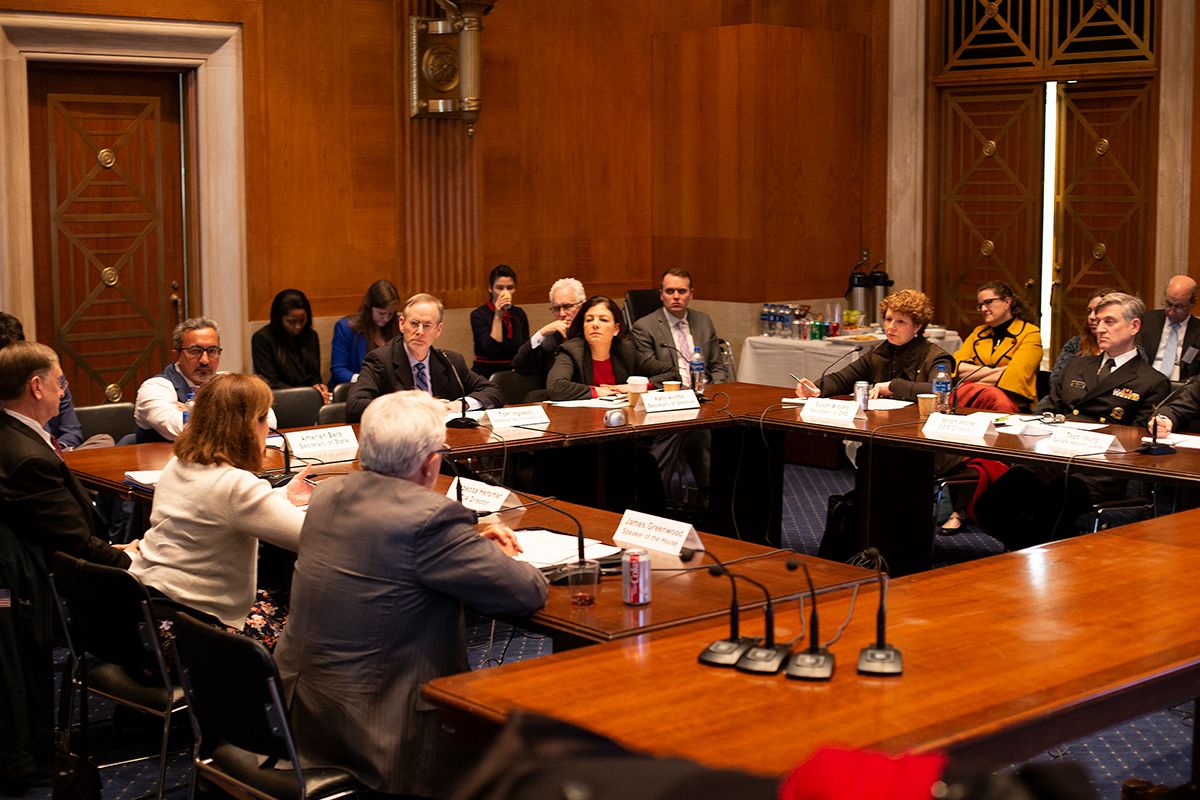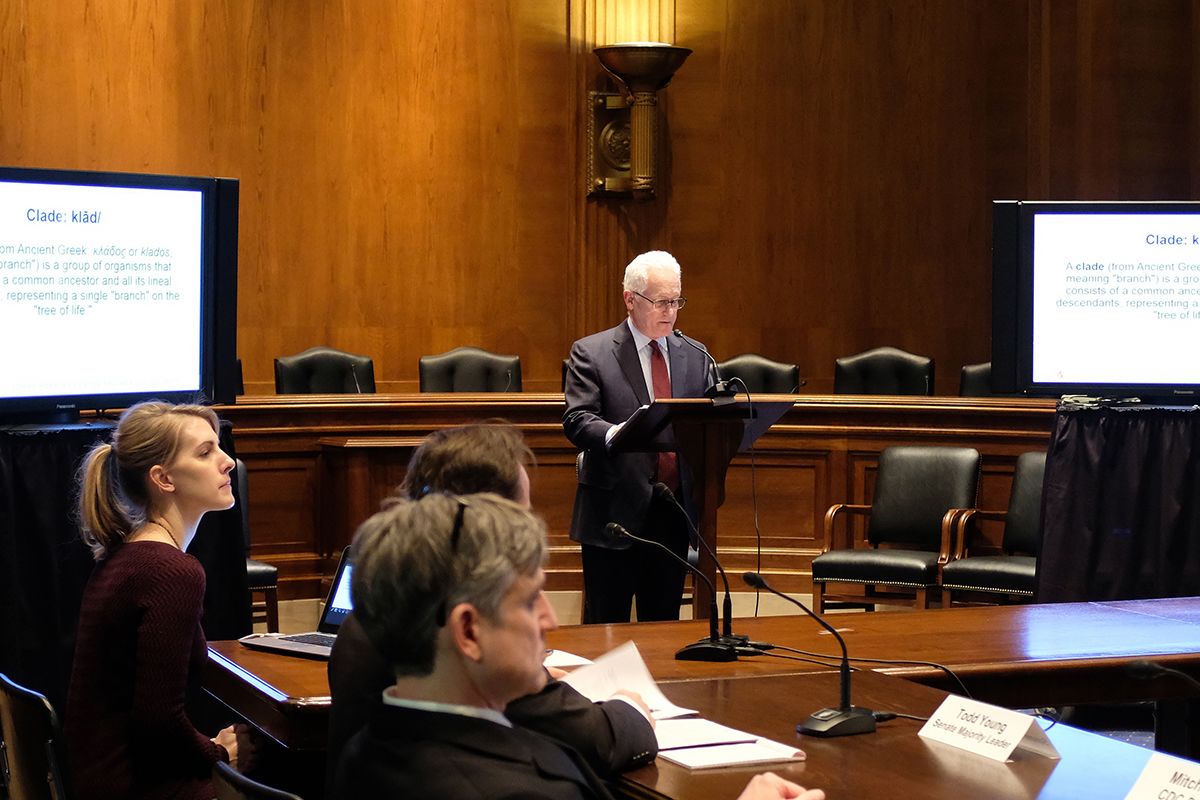Clade X Pandemic Simulation Exercise
"Clade X Pandemic Simulation Exercise." CSIS Commission on Strengthening America's Health Security, Center for Strategic and International Studies, January 28, 2019. Accessed October 01, 2025. https://healthsecurity.csis.org/events/clade-x-pandemic-simulation-exercise/
On January 28, 2019, the CSIS Commission on Strengthening America’s Health Security convened a high-level Clade X pandemic simulation exercise in collaboration with Commission expert advisor Tom Inglesby and the Johns Hopkins Center for Health Security. The exercise players included six Commissioners, including three Members of Congress, and two senior administration officials. Commission Secretariat Director J. Stephen Morrison offered welcoming remarks framing the exercise within the broader context of the Commission’s work, and Inglesby then led the players through the exercise.

The exercise built off of the success of the May 2018 Clade X tabletop exercise convened by Inglesby and the Johns Hopkins Center for Health Security. While the basic scenario of a moderately contagious and moderately lethal novel pathogen intentionally engineered by a fringe group remained the same, Inglesby and his team adapted the exercise to fit the Commission. The goals of the exercise were to illustrate the potential consequences of a pandemic and the challenges associated with response, as well as promote dialogue on potential policy solutions for preventing or mitigating the effects of a pandemic.
The exercise produced a number of key takeaways for the Commission. The exercise highlighted the potential for a novel pathogen to wreak havoc on U.S. and global populations, health systems, and economies. Such a pathogen can quickly reach a scale that overwhelms response capabilities. Without an effective vaccine or rapid point-of-care diagnostics, which require significant time for development, outbreak response becomes incredibly difficult. Lack of hospital infrastructure and limited health workforce capacity further constrain any response effort. Decision processes become complicated by urgent political pressures and uncertainty over the nature of the outbreak, whether it is deliberate or naturally occurring. The exercise underscored the importance of cross-governmental coordination and the critical role of Congress in funding pandemic preparedness and setting health security priorities. A significant focus of the discussion following the exercise was the need for Congress to move ahead with reauthorization of the Pandemic and All-Hazards Preparedness Act (PAHPA) and to make adequate multi-year budgetary investments in preparedness.

The exercise players included:
- Commission Co-Chair Kelly Ayotte, former U.S. Senator (R-NH);
- Commissioner Todd Young, U.S. Senator (R-IN);
- Commissioner Susan Brooks, U.S. Congresswoman (R-IN);
- Commissioner Ami Bera, U.S. Congressman (D-CA);
- Commissioner Jim Greenwood, President and CEO, Biotechnology Innovation Organization;
- Commissioner Rebecca Hersman, Director, CSIS Project on Nuclear Issues, and Senior Adviser, CSIS International Security Program;
- Dr. Robert Kadlec, Assistant Secretary for Preparedness and Response, U.S. Department of Health and Human Services;
- Dr. Mitch Wolfe, Chief Medical Officer and Acting Director of the CDC Washington, D.C. Office, U.S. Centers for Disease Control and Prevention;
- Commission Expert Advisor Tom Inglesby, Director, Johns Hopkins Center for Health Security.